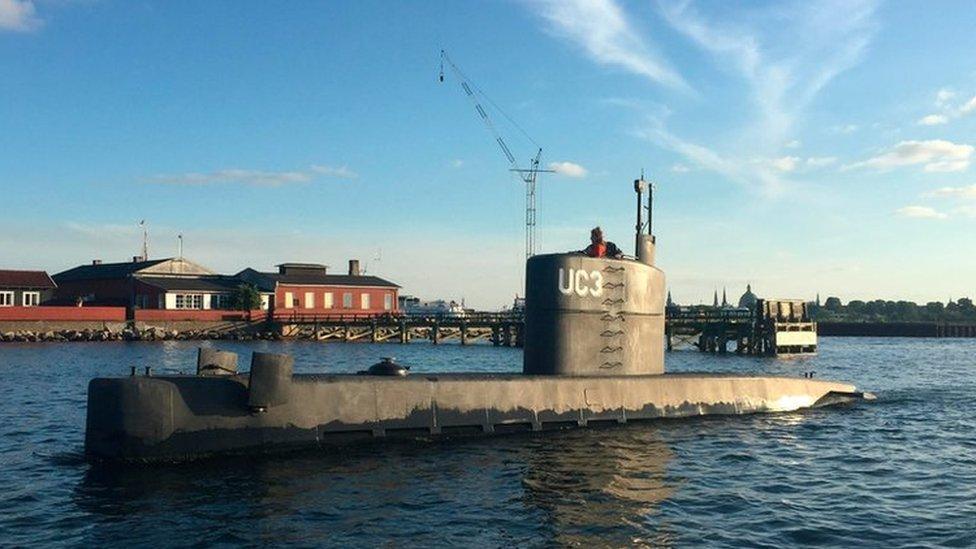Kim Wall: An 'exceptional' journalist remembered
- Published
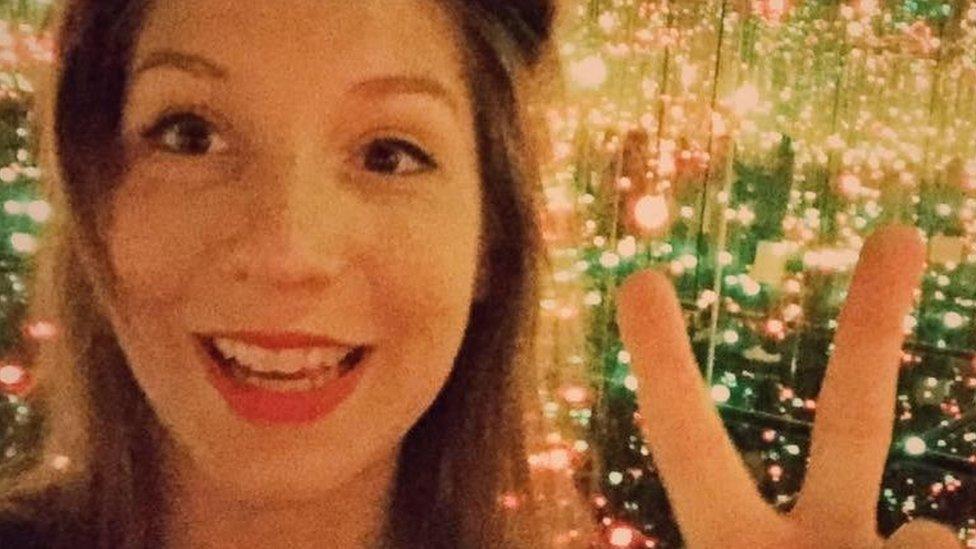
Kim Wall "never made a spectacle of the characters she reported on"
It is a "black irony" that Kim Wall - the journalist whose remains were found off Denmark - died while working in such a familiar and seemingly safe area, say friends and family.
The 30-year-old freelance reporter had travelled the world in pursuit of her stories - from Uganda to Cuba to the Marshall Islands to Kenya to New York City.
At one point she even "slipped into" North Korea.
She specialised in stories about identity, gender or subcultures, often with social justice themes.
"Kim has worked as a journalist in many dangerous places, and we have often been worried about her," her parents wrote in a letter to Danish TV, external while she was still missing.
"That something could happen to her in Copenhagen, just a few kilometres from the childhood home, we could not imagine at all."
Ms Wall was a formidable character and driven journalist, those who knew her say.
She was born in 1987 and grew up in a close-knit community in the small town of Trelleborg in southern Sweden, just across the strait dividing Denmark from Sweden.
Kim Wall's death - what we know so far
She studied international relations at London School of Economics and went on to gain a place on the rigorous masters programme of Columbia University's School of Journalism - described as the "Oxbridge of journalism".
Even within her cohort she was top of the class, winning honours in her year, her classmate and friend Anna Codrea-Rado told the BBC.
'Rock-solid reporting'
"What made her journalistic abilities so exceptional was that she looked for quirky stories but with a bigger narrative," she said.
"She reported them deeply - she never made a spectacle of the characters. Her reporting was rock-solid."
Her interest in people and stories made her a great party guest.
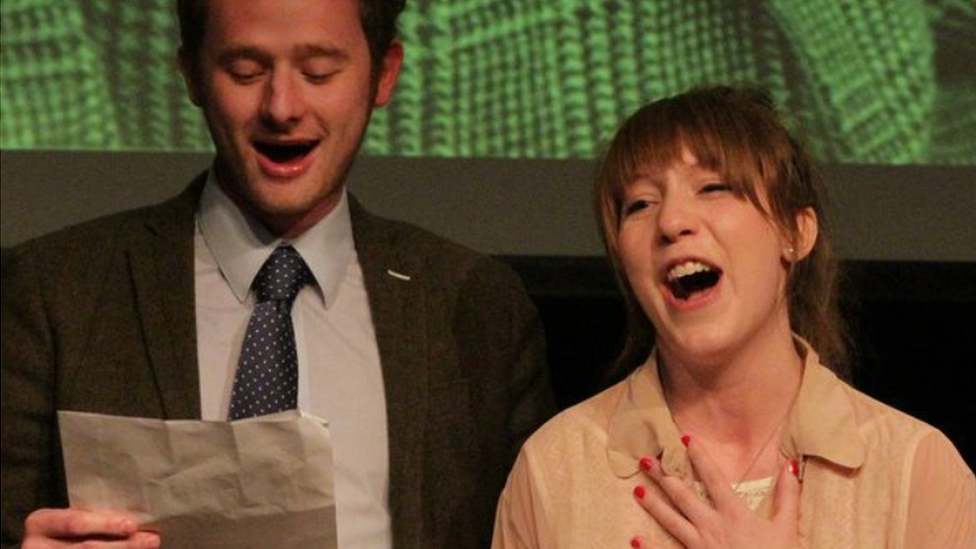
"She was one of the few people that could lift a room just by being in it," Ms Wall's friend Christopher Harress (left) told the BBC
"She was very bubbly and warm, the kind of person who had fantastic stories about the things she was working on - you could jump straight past the small talk.
"She was intellectual, so well-travelled and had such varied interests. She was interested in quirky and eccentric stories. If you were at a party you'd end up passing hours just chatting to her."
This admiration has been echoed by numerous friends.
Ms Wall wrote "about subcultures, about a globalised world in rapid change", says Victoria Greve in Sweden's Expressen newspaper, external.
"About life in a huge shopping centre in Kampala's Chinatown, about Cuba's underground internet providers who download and disseminate new episodes of Keeping Up with the Kardashians to people from all walks of life in Havana. We made a report together about the wealthy women in New York who voted for Donald Trump."

A taste of Kim Wall's work

But Ms Greve and others also highlight the effort and pluck needed to succeed at this genre of journalism in today's media.
"As news organisations grapple with shrinking budgets, they increasingly rely on freelancers, who cost less and are often willing to take on the attendant risks reporting in places they wouldn't send their staff to," writes Sruthi Gottipati in the Guardian, external.
"Even against this backdrop, the competition is fierce to place stories and female freelancers work hard to ensure their gender isn't calculated as a liability. So they clam up about the dangers they face and sometimes report before being commissioned to do so."
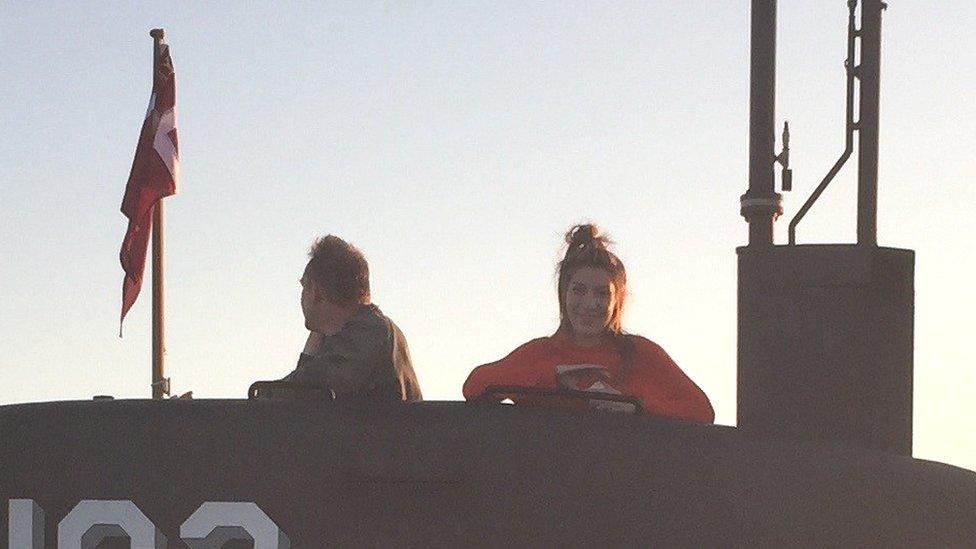
Madsen and Ms Wall were photographed just before departing on 10 August
This pressure to secure good material before there is even a formal commission could explain why no news organisation has confirmed it gave Ms Wall the assignment she died carrying out.
A friend and fellow freelance journalist, May Jeong, wrote that US technology magazine Wired had been in touch with Ms Wall, external about Peter Madsen's do-it-yourself rocket and submarine projects.
Ms Wall was staying in Copenhagen with her partner, Danish designer Ole Stobbe, when she began investigating the old harbour workshops where Madsen and other enthusiasts had built the submarine UC3 Nautilus.
On 10 August 2017, she boarded the submarine to interview him and was never seen again - her mutilated body was found by a cyclist 11 days later. In April 2018 Madsen was convicted of murder and now faces life in jail.
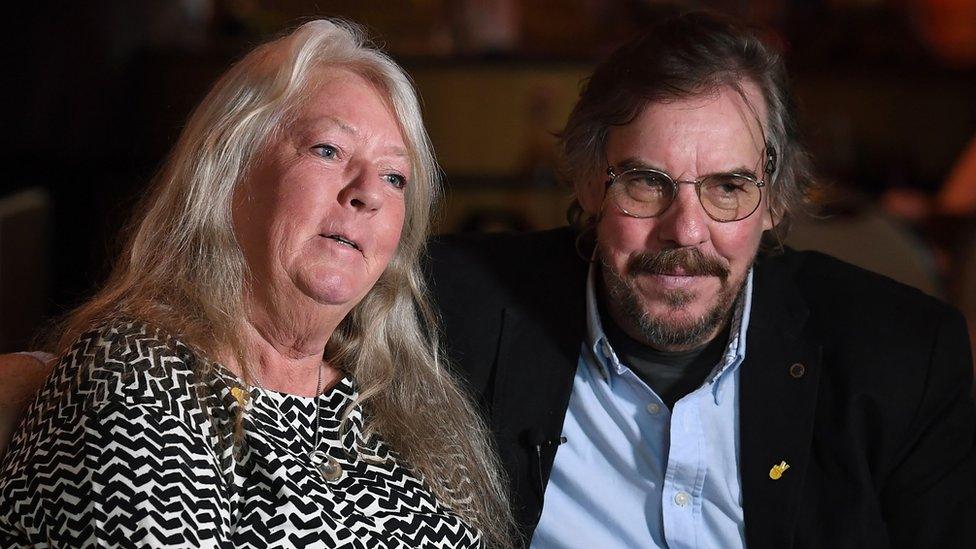
Kim Wall's grieving parents Ingrid and Joachim
May Jeong said Ms Wall was used to being in "uncomfortable" situations as a reporter, and "in stepping onto that submarine, Kim was doing what any reporter onto a good story would have done".
Friends and family have urged the world not to let the nature of her death overshadow her life.
"Please don't remember her as the murdered Swedish journalist who died in a grisly horror straight out of a crime drama," Ms Codrea-Rado said on Twitter, external.
"Remember her work."
This month the Swedish Publicists' Association gave a posthumous 10,000-krona (£843; $1,177) scholarship to Ms Wall.
Her parents Joachim and Ingrid donated it to the Kim Wall Memorial Fund, external, which will award it "to a young female journalist who wants to work in Kim's spirit", the family said.
- Published23 August 2017
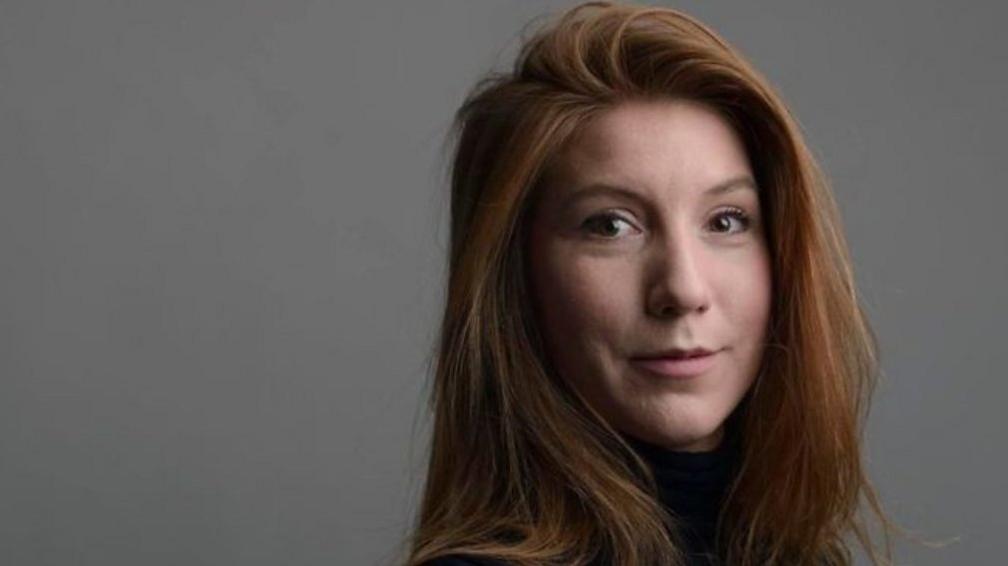
- Published8 March 2018
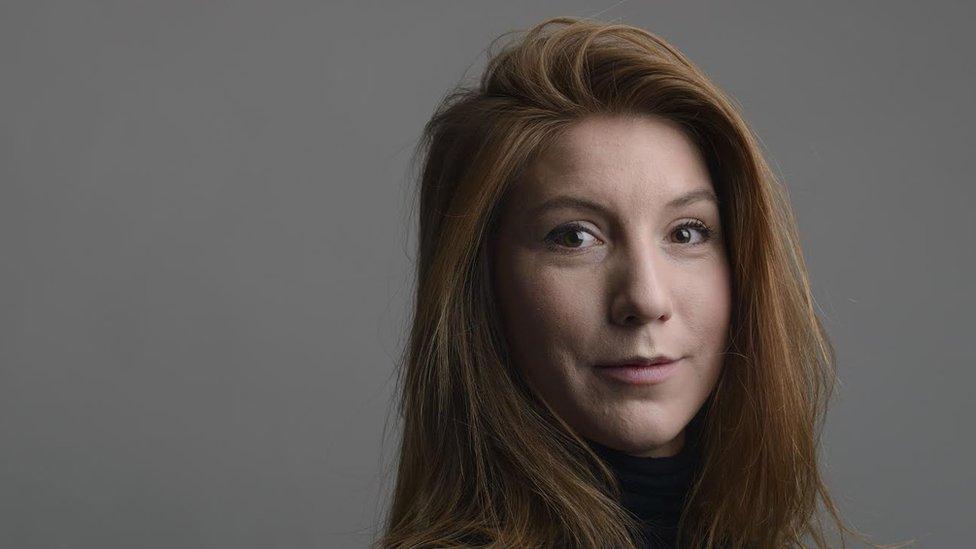
- Published21 August 2017
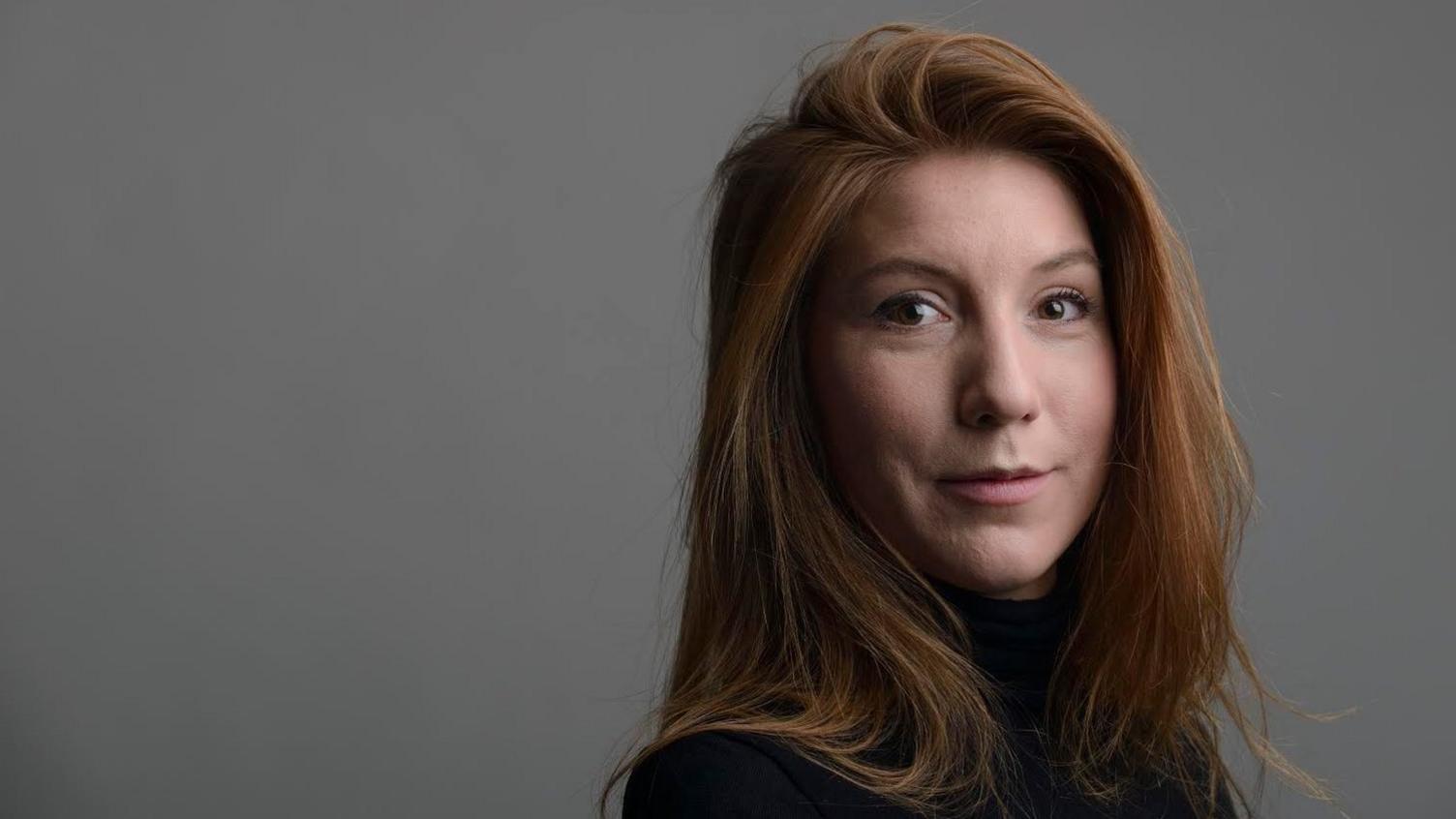
- Published25 April 2018
